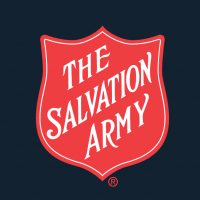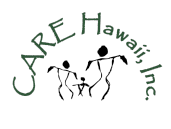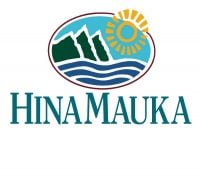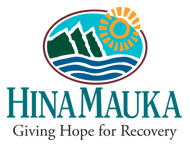Dole Middle School
Drug Rehab Center in Honolulu, Hawaii
Dole Middle School in Honolulu, Hawaii, is a private substance abuse and addiction treatment center for adolescents and young adults offering evidence-based, clinical treatment with an array of treatment methods, including outpatient and intensive outpatient services, individual therapy, group therapy, and family therapy, and continuing care planning, discharge planning, and case management services.
About This Hawaii Facility
Dole Middle School in Honolulu, Hawaii, is a private substance abuse and addiction treatment center for adolescents and young adults. Established in 1975, Dole Middle School offers evidence-based, clinical treatment for those ages 12-21 suffering from substance abuse and addiction. They focus on the physical, mental, and emotional well-being of those individuals, implementing individualized treatment plans that meet the client's needs by using an array of evidence-based treatment methods such as 12-Step Integration, Trauma Therapy, Cognitive Behavioral Therapy (CBT), and Motivational Enhancement Therapy (MET).
At Dole Middle School, the center offers outpatient and intensive outpatient services to help clients in their recovery journey. These services help individuals build a foundation to begin their healing process and learn about the underlying causes of their substance abuse disorder. Through individual therapy, group therapy, family therapy, and in-house activities, Dole Middle School helps clients build the skills and knowledge needed to successfully move forward in their recovery journey. Additionally, Dole Middle School offers continuing care planning, discharge planning, and case management services.
Dole Middle School is accredited by The Joint Commission, has been awarded the Gold Seal for Exemplary Quality, and is licensed by the State of Hawaii Department of Health Alcohol and Drug Division. Dole Middle School provides comprehensive substance abuse treatment, including pharmacological management and continuing care services, to ensure that clients continue their recovery journey with the proper support and resources needed.
Genders
Ages
Modality
Additional
Accreditations
SAMHSA
Conditions and Issues Treated
Levels of Care Offered at Dole Middle School
This center offers a variety of custom treatment tailored to individual recovery. Currently available are Aftercare Support, Drug Rehab, Outpatient, Residential, with additional therapies available as listed below.
Individuals struggling with drug addictions can get help from several treatment options, including inpatient and outpatient programs. Outpatient drug treatment programs can also provide patients with different levels of care, usually depending on the patient’s degree of addiction.
At an outpatient program in Honolulu, a patient will attend a recovery program during the day and return home in the evening. Suppose a patient is struggling with drug addiction. In that case, an outpatient program can serve as an effective transition point during the recovery process.
Residential treatment programs are those that offer housing and meals in addition to substance abuse treatment. Rehab facilities that offer residential treatment allow patients to focus solely on recovery, in an environment totally separate from their lives. Some rehab centers specialize in short-term residential treatment (a few days to a week or two), while others solely provide treatment on a long-term basis (several weeks to months). Some offer both, and tailor treatment to the patient’s individual requirements.
Aftercare is a part of drug rehabilitation. It is also known as “post-treatment support.” Aftercare programs are available for addicts after they complete drug rehab. It is often the final step in the recovery process. The goal of aftercare is to ensure that addicts maintain their achievements in rehab and do not relapse. Professionals generally provide aftercare (including addiction therapists, physicians, social workers, psychologists) and involve individual and group therapy sessions.
Therapies & Programs
Individual therapy is a critical component of addiction recovery. It allows the patients to go deep into their core issues and discover how to handle those problems better. Therapy can be conducted in individual sessions as well as group settings. In individual therapy for addiction, the patient meets with their therapist one-on-one to focus on the underlying issues. This allows patients to open up and discuss personal topics they may not feel comfortable discussing in a group setting. This type of therapy can help develop solutions specific to each patient, which helps speed up the recovery process.
Family therapy is a crucial part of drug treatment and getting sober. It is one of the most effective ways to help addicts stay on the path to long-term sobriety. When a drug addict decides that they want to try and get sober, it takes the support of every person they love to succeed. It can be incredibly difficult for loved ones to watch an addict go through the pain and suffering of withdrawal, but by being there with them and supporting them, they can help to make sure that the addiction never returns.
One of the most important parts of family therapy is the relapse prevention plan. During treatment, therapists and doctors will often sit down with the addict and their family to develop a plan in case the addict ever feels like they want to use again. This plan should involve steps the addict and family can take together to prevent them from relapsing in the future. An addict’s family can play a vital part in helping them to avoid relapse because they can spot the warning signs and help them get back on track before it becomes too much of a problem.
Group therapy helps prevent addicts from feeling isolated or unique in their situation by offering a sense of comfort and fellowship. It also creates a forum for addicts to build their support systems and learn from each other. The group therapy sessions at Dole Middle School occur in a group setting rather than one-on-one to create a safer, controlled environment where addicts feel comfortable.
Trauma therapy helps people dealing with addiction by allowing them to confront the traumas of their past and move past them. It is important to note that trauma therapy should not be confused with PTSD (post-traumatic stress disorder) Rather, it is used to treat the effects of trauma, which are often at the root of addiction.
The best drug treatment centers offer various services to help addicts learn how to live without drugs. Since addiction is a chronic physical and mental illness, addicts need to learn as many life skills as possible to help them stay clean and sober.
Many drug treatment centers like Dole Middle School offer life skills activities as part of their addiction recovery programs. Examples include cooking classes, employment training, resume writing seminars, parenting classes, and computer training. When addicts have various life skills to lean on, they’re better equipped to put their addiction behind them for good.
The primary goal of life skills activities at drug treatment centers like Dole Middle School is to help addicts recover from addiction and learn how to live a useful, productive life. Life skills activities help addicts find employment, take care of their families, and give back to the community. After learning about these various life skills, addicts are better prepared to return to society and lead happy healthy lives.
Drug addiction can be a difficult thing to overcome, but with the help of nutrition therapy, it can become a little bit easier. Nutrition therapy provides addicts with the nutrients they need to recover both physically and mentally. This type of therapy also helps addicts to have more energy and strength to fight cravings. Most importantly, good nutrition helps to keep addicts strong against the physical symptoms of withdrawal.
Nicotine replacement therapies are effective because they provide you with the nicotine you are addicted to without inhaling carcinogens from cigarettes. Some types of NRT include nicotine gum, nicotine patches (transdermal systems), nasal spray, and lozenges. The benefits of using NRT can include reducing the risk of heart disease and cancer.
Patient Experience
Creative Arts
Creative arts therapy is an expressive process that helps people heal. Even if the goal isn’t always to create a finished product, it’s therapeutic for many. They can express themselves through journaling or other creative outlets like sketching, painting, sculpting, etc. This helps them cope with stress and anxiety better than before (and even when they were). The activity improves communication skills and the ability to process traumatic events from one’s past, often triggered during periods of withdrawal/relapse.
Experiential Therapy at Dole Middle School
Experiential Therapy is a new approach to addiction treatment. Addiction-related psychological issues like depression and anxiety are addressed through physical activities.
Experiential Therapy can help those who have struggled with past traumas or life decisions like drug use. It allows people to gain new perspectives on their behavior patterns by recreating experiences in healthy ways rather than continuing old habits that may no longer serve them well.
Fitness Therapy
Opting for fitness therapy allows someone to get through their recovery while also rebuilding their body. They can do this by pairing it with nutritional therapy, which will help them feel better and make healthier choices from the start of rehab. This type of physical activity that they provide offers a solid connection between your mind and body, teaching how to create healthy life habits without an addiction involved at all.
Fitness Therapy comes in two types: psychotherapy combined with exercise or just exercise alone, where people learn about nutrition throughout the process. It’s most commonly used in rehabilitation programs offered by Dole Middle School.
Additional Details
Specifics, location, and helpful extra information.
Honolulu, Hawaii 96819 Phone Number(808) 848-2494 Meta DetailsUpdated November 25, 2023
Staff Verified
Patient Reviews
There are no reviews yet. Be the first one to write one.
Honolulu, Hawaii Addiction Information
Hawaii has one of the highest rates of drug abuse in the nation. Methamphetamines and marijuana are the most common drugs involved in drug-related crimes in Hawaii. The state loses $500 million every year due to methamphetamine abuse, according to the Hawaii Meth Project. More than 1 million prescriptions for prescription drugs are given out every year.
In 2016, there were 809 drug-related deaths in Honolulu. Heroin was involved in more than half of all overdose deaths in 2016. 6.1 percent of people in Honolulu abused drugs in the past month. In 2015, there were 2,538 admissions to treatment centers for drug abuse in Honolulu. There are many drug treatment facilities in Honolulu, HI that can help you or your loved one get sober.
Treatment in Nearby Cities
- Lahaina, HI (83.1 mi.)
- Mililani, HI (12.0 mi.)
- Schofield Barracks, HI (16.3 mi.)
- Aiea, HI (4.7 mi.)
- Kula, HI (106.7 mi.)
Centers near Dole Middle School
The facility name, logo and brand are the property and registered trademarks of Dole Middle School, and are being used for identification and informational purposes only. Use of these names, logos and brands shall not imply endorsement. RehabNow.org is not affiliated with or sponsored by Dole Middle School.








